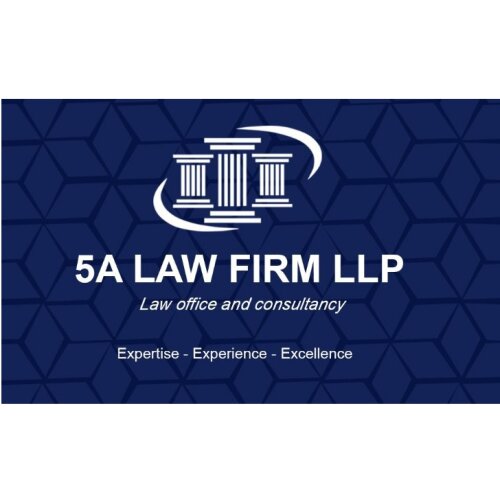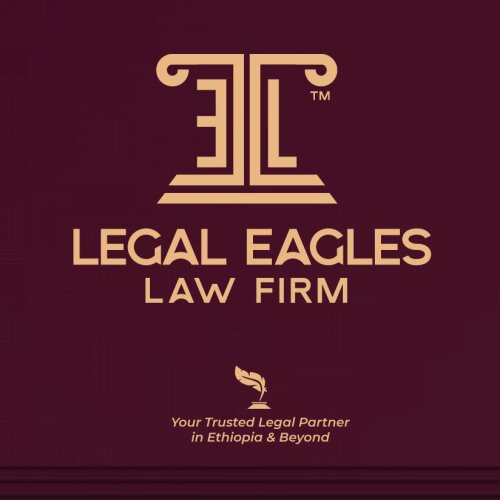Best Water Law Lawyers in Addis Ababa
Share your needs with us, get contacted by law firms.
Free. Takes 2 min.
List of the best lawyers in Addis Ababa, Ethiopia
About Water Law in Addis Ababa, Ethiopia
Water Law in Addis Ababa, Ethiopia governs the rights, management, and use of water resources within the city and the wider nation. Ethiopia relies on both surface and groundwater sources to meet the needs of its population, especially in rapidly growing urban centers like Addis Ababa. Water Law aims to balance competing demands for water, ensure its equitable distribution, protect water quality, and provide a legal framework for addressing disputes. The administration and regulation of water resources fall under both federal and regional laws, with local authorities playing a key role in water access, supply, and sanitation.
Why You May Need a Lawyer
There are many situations where you might require legal guidance or representation in matters related to Water Law in Addis Ababa. Common scenarios include:
- Disputes over water rights or allocations between individuals, businesses, or communities
- Issues involving land development, construction, or irrigation that affect water resources
- Conflicts regarding water extraction, usage, or contamination
- Negotiations with local authorities or agencies regarding new water connections or upgrades to existing infrastructure
- Challenges related to water tariffs, billing, or service interruptions
- Cases involving industrial or agricultural pollution impacting public or private water supplies
- Legal matters concerning permits or licenses for large-scale or commercial water use
- Protection of community water sources and rights of vulnerable groups
- Enforcement or contesting of municipal or federal regulations affecting water access
An experienced lawyer can help you understand your rights and responsibilities, prepare or review legal documents, and represent your interests in negotiations or court proceedings.
Local Laws Overview
Water Law in Addis Ababa is shaped by both Ethiopian federal legislation and regional proclamations. The most important national law is the Ethiopian Water Resources Management Proclamation No. 197/2000, which establishes government ownership of all water resources in Ethiopia and sets the legal framework for their use and management. Key local aspects include:
- All water resources are public property, and private ownership of water resources is not permitted
- Water usage, especially for commercial or large-scale activities, typically requires a permit or license from relevant authorities
- The Addis Ababa Water and Sewerage Authority (AAWSA) manages water supply and wastewater services in the city
- Individuals and businesses must comply with water quality and conservation regulations
- Regulations exist concerning the protection of catchment areas and the prevention of contamination or over-extraction of water sources
- Disputes related to water are addressed through administrative hearings or the court system, depending on the nature and severity of the case
Anyone using or seeking access to water for domestic, agricultural, or industrial purposes should be aware of their legal obligations and the potential for overlapping jurisdiction between various governmental bodies.
Frequently Asked Questions
What is Water Law and why is it important in Addis Ababa?
Water Law consists of the legal rules and regulations that govern the ownership, allocation, use, and protection of water resources. In Addis Ababa, where water scarcity and rapid urbanization can put stress on the system, strong Water Law helps ensure fair and sustainable access for all.
Who manages water resources and distribution in Addis Ababa?
The Addis Ababa Water and Sewerage Authority (AAWSA) is the primary body responsible for managing, supplying, and regulating water and wastewater services within the city, operating under guidelines from federal and regional agencies.
How can I obtain a permit or license for water use in Addis Ababa?
To obtain a permit for substantial water use, such as irrigation, commercial or industrial activities, you must apply through the relevant local authority, provide information about your plans, and comply with regulations regarding usage and environmental impact.
What should I do if my neighbor is contaminating a shared water source?
You can report the issue to AAWSA or the local environmental protection office. A lawyer can assist you in protecting your rights and pursuing legal action if necessary.
What are the penalties for illegal water extraction or pollution?
Penalties may include fines, suspension of water services, and in severe cases, criminal charges or civil liability for damages. The specifics depend on the extent of the violation and applicable laws.
Is water considered private or public property in Ethiopia?
All water resources in Ethiopia, including those in Addis Ababa, are public property owned by the government. Individuals have rights to use water but not to own it privately.
Can I drill a private well on my property within Addis Ababa?
Drilling private wells generally requires permission from the relevant authorities, and must comply with city planning, environmental, and health standards.
How are water tariffs and billing disputes resolved?
Disputes over water bills or tariffs are typically addressed by contacting AAWSA. If the issue is not resolved, you can seek administrative review or legal advice for further actions.
What are the main laws regulating industrial or commercial water use?
The Water Resources Management Proclamation, environmental protection laws, and specific AAWSA regulations set the legal requirements for industrial and commercial users, including permits, limits, and quality standards.
How can I challenge a decision made by the water authority?
You have the right to make a formal complaint or appeal through AAWSA’s dispute procedures. For complex cases, a lawyer can help you file a challenge in court or through administrative review.
Additional Resources
- Addis Ababa Water and Sewerage Authority (AAWSA)
- Ministry of Water and Energy of Ethiopia
- Addis Ababa City Administration Environmental Protection Authority
- Ethiopian Environmental Protection Authority
- Local legal aid services and professional bar associations
- Non-governmental organizations supporting water resource protection and community water access
Next Steps
If you believe you need legal advice or assistance regarding Water Law in Addis Ababa, Ethiopia, consider the following steps:
- Gather all relevant documents, contracts, permits, and correspondence related to your water issue
- Contact the relevant authority, such as AAWSA, to clarify regulations and seek resolution for straightforward matters
- Seek out a lawyer experienced in Water Law to review your case, explain your legal position, and represent you if necessary
- Consult additional resources or legal aid providers if you have limited financial means
- Act promptly as delays may limit your legal options or worsen the situation
Understanding your rights under Water Law in Addis Ababa will help you make informed decisions and protect your interests. Always consult a qualified legal professional for guidance specific to your situation.
Lawzana helps you find the best lawyers and law firms in Addis Ababa through a curated and pre-screened list of qualified legal professionals. Our platform offers rankings and detailed profiles of attorneys and law firms, allowing you to compare based on practice areas, including Water Law, experience, and client feedback.
Each profile includes a description of the firm's areas of practice, client reviews, team members and partners, year of establishment, spoken languages, office locations, contact information, social media presence, and any published articles or resources. Most firms on our platform speak English and are experienced in both local and international legal matters.
Get a quote from top-rated law firms in Addis Ababa, Ethiopia — quickly, securely, and without unnecessary hassle.
Disclaimer:
The information provided on this page is for general informational purposes only and does not constitute legal advice. While we strive to ensure the accuracy and relevance of the content, legal information may change over time, and interpretations of the law can vary. You should always consult with a qualified legal professional for advice specific to your situation.
We disclaim all liability for actions taken or not taken based on the content of this page. If you believe any information is incorrect or outdated, please contact us, and we will review and update it where appropriate.

















